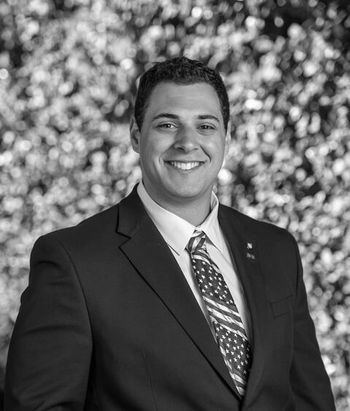YAF lawsuit against SUNY Buffalo escalates after new policy forces clubs to surrender legal rights
Alliance Defending Freedom is now suing to stop the State University of New York at Buffalo from forcing student groups to surrender their legal rights.
SUNY Buffalo's Legal Status Ban says that student groups or clubs cannot have legal or financial controls of their own, and must operate through the Student Association.
Alliance Defending Freedom is suing to stop the State University of New York at Buffalo (Buffalo) from violating student groups’ legal rights.
In June, Campus Reform covered ADF’s lawsuit against Buffalo officials and the Student Association, after the school put policies in place targeting the Young Americans for Freedom chapter on campus. The associastion has since revoked those policies, but new policies have now been put in place by the Student Association forcing student groups to surrender their legal rights.
[RELATED: YAF chapter sues University at Buffalo officials for violating First Amendment rights]
”SUNY Buffalo allows the Student Association to violate the rights of Young American for Freedom, and other groups, to free speech and association,” Alliance Defending Freedom Senior Counsel Caleb Dalton said in a statement to Campus Reform. “But universities can’t put unconstitutional conditions on the ability to associate together on campus. It’s unconscionable that a Public University would sanction a policy that prohibits students from suing to protect their constitutional rights. Universities should be encouraging students to start intellectually diverse groups on campus, not shutting them down and trying to shield themselves from liability for their unconstitutional acts.”
According to the amended complaint, on July 3, the Buffalo Student Association revoked its ban on student organizations from being affiliated with national organizations, and declared that it had never taken effect. However, the policy was replaced with a “Legal Status Ban.”
The Legal Status Ban says that “[n]o club shall be a separate legal entity from SA. Recognized clubs may not have any accounts or financial activities outside of SA. Recognized clubs may not enter into contracts, take legal actions, commence litigation or undertake legal obligations; only SA itself may enter into contracts, take legal actions, commence litigation and/or undertake legal obligations.”
Furthermore, the new policy states that student officers of recognized clubs must sign an “‘Acknowledgement of Club Officer Responsibilities.’” The document requires student officers to certify that they will comply with the Legal Status Ban, which imposes similar restrictions on club officers signing contracts or entering agreements on behalf of their clubs.
The policy also states that “[a]ny agreement for a Student Association club to be recognized as a chapter of any outside organization is subject to review pursuant to SA contract policy(ies).”
The amended complaint alleges that the new policies violate YAF’s rights as an “unincorporated association.” According to New York law, any partnership or group with a president or treasurer is an unincorporated association; these associations are allowed to take legal action to protect their rights by and through their presidents and treasurers, but the policy is banned under the Buffalo Legal Status Ban. As a result, YAF could be de-recognized simply for bringing the suit in the first place.
The Legal Status Ban also strips YAF’s right to hold funds for expressive events, in violation of free speech. By prohibiting student organizations from raising funds or entering into contracts or agreements outside the purview of the Student Association, it has control over YAF’s finances and discretion over contracts for speaking engagements and other expressive activities.
ADF alleges that the contract review process has no viewpoint-neutral guidelines for approval, no appeal process, recording process, or guarantee of timeline; in fact, the contract process explicitly disclaims any guarantee of timeline. The Student Association previously used such discretion to tie up the approval process for Michael Knowles’s appearance at Buffalo.
ADF is seeking a judgment recognizing that the Recognition policies violate Buffalo YAF’s First and Fourteenth Amendment Rights; an injunction blocking Buffalo from enforcing the Recognition policies without viewpoint-neutral criteria; and another injunction blocking the university from penalizing YAF for “existing as a legal entity, filing a lawsuit to vindicate their rights, having financial accounts, or entering into agreements to the extent permitted by state law.”
Campus Reform also reached out to the SUNY Buffalo officials named in the suit for comment. This article will be updated accordingly.

